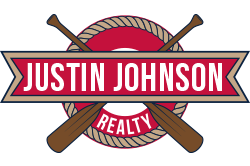How to Bid on a House with Multiple Offers
Buying a home is exciting — but when you find the perfect property, only to learn there are multiple offers, it can feel intimidating. In a seller’s market, where housing inventory is low and housing demand is high, bidding wars are common.
Still, competing doesn’t have to mean losing. With careful planning, a clear strategy, and a bit of insider knowledge, you can make your offer stand out without stretching beyond your comfort zone. Justin Johnson Realty, we’ll guide you through the process of handling a multiple offer situation.
What Does It Mean When a House Has Multiple Offers?
A multiple-offer situation occurs when several buyers submit bids on the same property — often within days of its listing. Sellers love it because it can drive up the offer price. Buyers, however, need to be strategic.
When sellers review offers, they don’t just look at numbers. They evaluate certainty: who’s most likely to close smoothly, on time, and without complications. This means the strongest offer isn’t always the highest one – it’s the one that feels safest.
Justin Johnson Realty can help you understand this dynamic so you can shape your proposal around what really matters to the seller: reliability, timing, and simplicity.
How to Win a House in a Multiple-Offer Situation
Standing out in a property bidding war takes preparation, flexibility, and clarity. Here are some approaches that give you an edge:
1. Get Pre-Approved for a Mortgage
A pre-approval letter from a trusted mortgage lender proves that your income, credit score, and finances have been verified. It also tells sellers you’re financially ready to buy — no delays, no surprises.
If you’re early in the process, talk to your lender about mortgage rates and loan options. A solid loan commitment gives you a major advantage when offers start rolling in.
2. Make a Strong Earnest Money Deposit
3. Simplify Your Offer
Sellers prefer clean, simple offers that reduce uncertainty. Keep the contract concise, include only essential contingencies, and avoid unnecessary requests like extra closing costs or home warranties.
4. Move Quickly but Thoughtfully
5. Work with an Experienced Local Agent
An experienced local agent can make or break your outcome in a bidding war. They understand market trends, local pricing, and seller motivations — allowing them to position your offer strategically.
What Factors Matter to a Seller During a Multiple Offer Situation?
Sellers look for the surest path to closing, not just the biggest number. Factors that matter include:
- Financing Type: Cash and conventional loans are attractive because they involve fewer hurdles than government-backed loans.
- Closing Date: Matching the seller’s preferred closing date or offering flexibility (like a rent-back agreement if they need more time) can outweigh a higher price.
- Contingencies: Sellers favor offers with fewer or shorter home inspection contingencies or financing conditions.
- Certainty of Closing: Verified funds or a mortgage preapproval reassure sellers that you won’t fall through at the last minute.
- Ease of Transaction: Offers that require fewer concessions or special conditions simplify the process and inspire confidence.
When crafting your offer, think about what you would want as a seller. Convenience, certainty, and professionalism often win over higher prices that come with strings attached.
What Is an Escalation Clause?
An escalation clause automatically raises your bid by a certain amount above competing offers, up to a specified limit. It can be an effective way to stay competitive without guessing what other buyers are offering.
For example:
This keeps you in the running without constant renegotiation — but it also reveals your maximum offer price, so use it strategically.
Should You Waive Contingencies in a Competitive Market?
Waiving contingencies may increase your chances of winning in a multiple offer situation. However, it opens you up to significant financial risks.
Home Inspection Contingency

Appraisal Contingency

Financing Contingency

This protects you if your loan isn’t approved. If your finances are strong and you’re fully pre-approved for a mortgage, you may shorten the timeline instead of waiving it altogether.
Each situation is unique. Justin Johnson Realty can help assess your comfort level, the home’s condition, and whether removing contingencies is worth the risk.
Can a Seller Accept Another Offer After a Counteroffer?
Yes — a seller can accept another offer after making a counteroffer until the buyer signs and delivers acceptance in writing. A counteroffer cancels the original offer, so there’s no binding agreement until both parties have signed the same terms. Until that happens, the seller is legally free to accept another, more favorable offer.
You should respond to counteroffers quickly, as hesitation can cost them the deal. Some counteroffers include expiration times, but sellers don’t always wait for them to lapse before moving on. To stay protected, maintain close communication with your real estate agent, review the terms carefully, and be prepared to act fast when the right opportunity arises.
Common Mistakes to Avoid in Competitive Offers
While it’s important to know what to do, it’s just as critical to know what not to do. Here are the mistakes that might prevent you from securing the house.
- Overbidding Beyond Your Budget: The pressure to win can lead buyers to offer more than they can comfortably afford. This may lead to future financial strain. Always set a firm ceiling and stick to it.
- Waiving Critical Protections Without Caution: Removing every contingency might make your offer attractive, but it could also leave you vulnerable. Waive only what you and your agent agree is reasonable; don’t compromise your financial safety.
- Hesitating Too Long: Indecision can be the difference between getting the house and losing it. If you love a specific commercial property, be prepared to move quickly with your agent’s guidance.
- Focusing Only on Price: A high offer is tempting, but sellers often care about convenience and timing as much as they do about money. Overlooking these factors can make your offer less appealing, even if it’s above list price.
Win Your Dream Home With Justin Johnson Realty
Winning a home in a competitive market isn’t just about numbers — it’s about knowledge, preparation, and strategy. Every choice you make sends a message to the seller about your reliability. Start by doing your homework: understand your budget, your loan options, and the market you’re buying in. Be patient, but ready to act quickly when the right opportunity comes along.
Contact Justin Johnson Realty today to schedule your buyer consultation and start your journey toward homeownership with clarity, strategy, and confidence.
